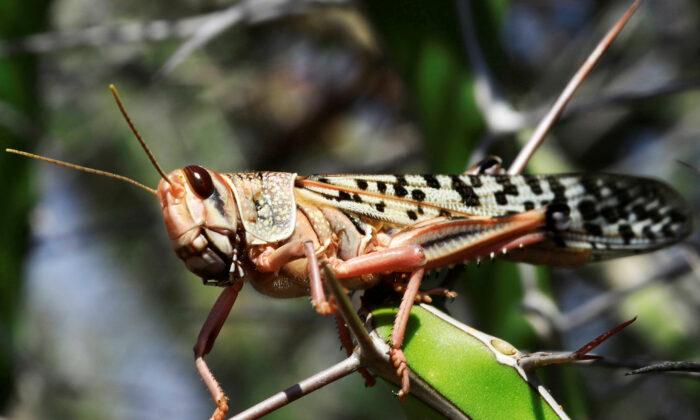BEIJING—China could face a desert locust invasion, a government body warned on Mar. 2, urging local authorities to prepare for the possible arrival of the voracious insects from neighboring Pakistan and India.
The risk of swarms entering the country is low, although China will be hampered in tracking the locusts by a lack of monitoring techniques and little knowledge of migration patterns, the National Forestry and Grassland Administrations said on its website.
Locust swarms could enter the Tibet region from Pakistan and India, or the southwestern province of Yunnan through Burma (also known as Myanmar), depending on climate conditions, the notice said. Swarms could also fly across Kazakhstan and into China’s Xinjiang region.
Authorities in the western region, which also borders Pakistan, said mountains and the absence of tropical and sub-tropical deserts have reduced the chances of locusts migrating into the area, but such a possibility will increase in June and July if outbreaks can not be effectively controlled overseas, Xinhua reported on Monday.
Customs at Khunjerab, a pass between China and Pakistan in southwestern Xinjiang, have started monitoring surrounding areas within 2 km for locusts. They are inspecting or sterilizing vehicles and goods crossing the border, targeting locust adults that might come along or soil and plants that contain the insects eggs, according to the state media.
The desert locusts have already ravaged crops and pastures in several countries in east Africa and swarms have spread into India and Pakistan.
Locust swarms can fly up to 150 km (90 miles) a day with the wind, and adult insects can consume roughly their own weight in fresh food per day.
Beijing has set up a task force that will meet this month to monitor and act on any locust invasion, the government body said.
Local forestry and grassland administrations “must be fully aware of the extreme importance of prevention and control work against locusts,” it said.
They should store pesticides and equipment and have personnel ready to take immediate and effective measures once locusts are detected, it added.






Friends Read Free